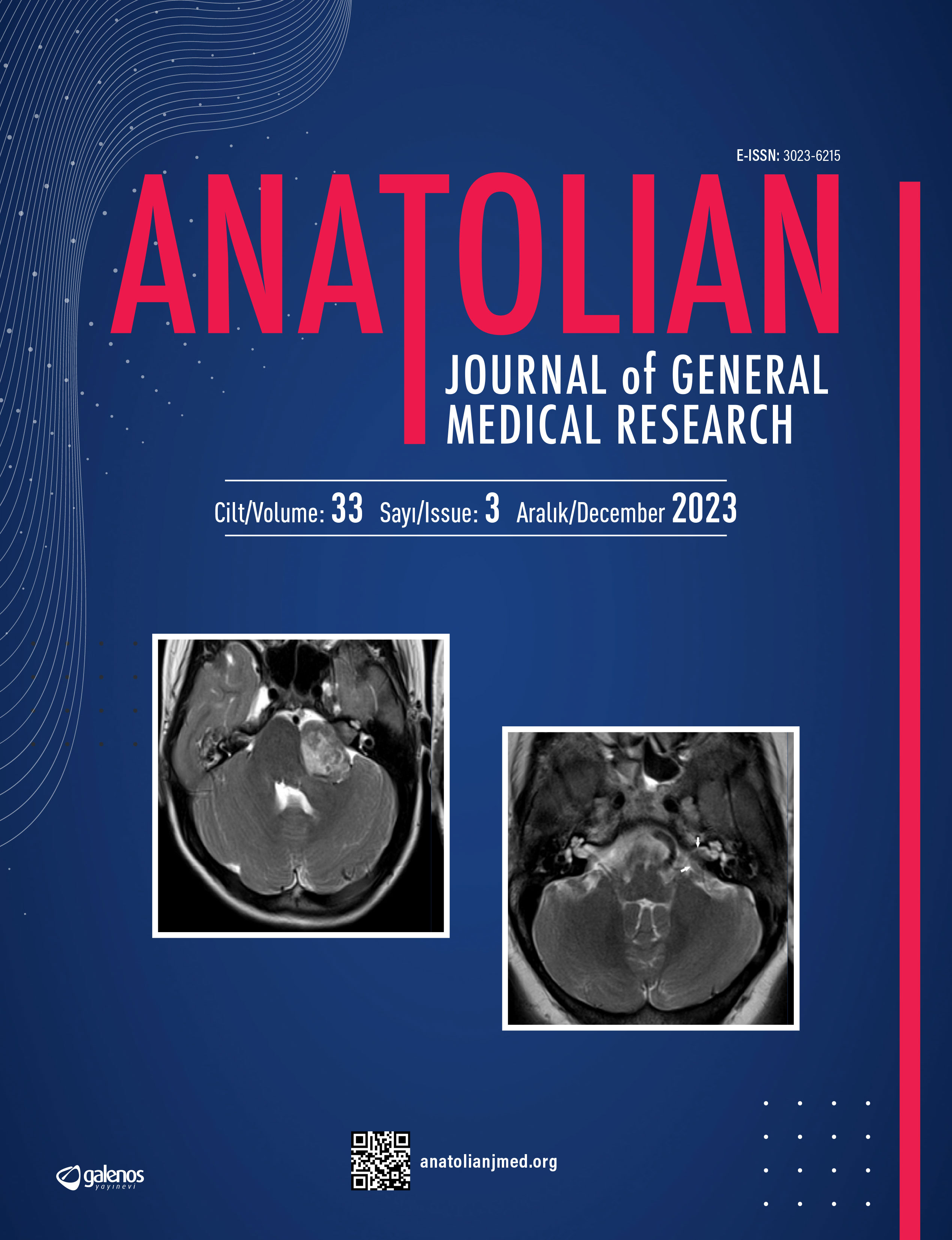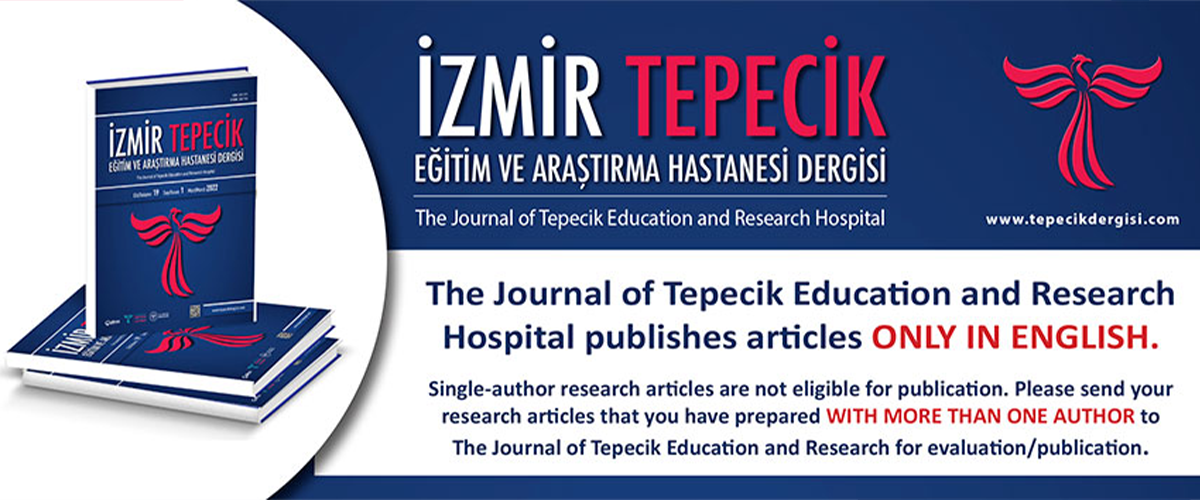








Effects of Steroid Withdrawal lmmunosuppressive Protocols on Graft Function
Muharrem Karaoğlan1SSK Tepecik Eğitim Hastanesi, Organ Nakli Merkezi, İzmirAim: Steroid side effects have forced the clinicans to use steroid withdrawal immunosuppressive protocols after renal transplantation. We studied the effects of steroid withdrawal immunosuppressive protocols on graft function in this prospective study. Methods: 61 renal transplant patients who have had normal graft function for the last 6 months, and who have finished their second year after transplantation were randomized either to steroid withdrawal (n=31) or steroid continued (n=30) groups. The patients were followed up for 24 months. Patients within the groups were evaiuated for their blood pressure (BP), number of acute rejection attack (ARA), fasting blood glucose, serum creatinine, trigliseride and cholestrol levels. Mean values of these parometers at 3,6,12 and 24 months were then compared with the basal mean values of the last six months before the beginning of study. For statistic alanalysis SPSS 11.0 program was used; p< 0.05 was accepted as significant. Results: In the steroid withdrawal group mean blood pressure, fasting glucose and creatinine levels were not statistically different than the pre-study basal values of the patients (p>0.05). Hence, trigliseride values were found statistically lower at each control; and cholestrollevels were also found lower at each control but statistical difference were found at the fırst three controls, within the two years (p<0.05). In the steroid-continued group non of the parameters showed statistical difference with the basal values (p<0.05). 3 attacks of acute rejections in the the steroid withdrawal group and 4 in the steroid continued group were seen (p=O. 7). One chronic allograft nephropathy in the steroid withdrawal group and 3 in the steroid continued group were seen (p=0.19). In 12 patients in the steroid withdrawal group steroid was restarted after azathiopirin toxicity, acute rejection, chronic allograft nephropathy, elevated creatinine. Conclusion: Withdrawal of steroids lowered serum lipid levels although it did not affect fasting glucose level, arterial blood pressure, and acute rejection rates. To avoid the side effects steroids in patients with stable graft functions, steroid withdrawal immunosuppressive protacols can be preferred.
Keywords: Steroid, immunosuppression, renal transplantationSteroid Kesilen Immünsüpresif Protokollerin Transplante Böbrek İşlevlerine Etkisi
Muharrem Karaoğlan1SSK Tepecik Eğitim Hastanesi, Organ Nakli Merkezi, İzmirAmaç: Son yıllarda, renal transplantasyon sonrası steroidlerin yan etkilerinden kaçınmak amacıyla steroidin kesildiği immünsüpresif protokollerin uygulanması yönündeki yaklaşımlar giderek artmıştır. Bu prospektif çalışmadaki amacımız steroidin kesildiği immünsüpresif protokollerin böbrek işlevleri ve kan lipid profili üzerindeki etkilerini araştırmaktır. Yöntem: Kliniğimizde böbrek nakli yapılan olgu/ardan, transplantasyon sonrası 2 yılını doldurmuş ve son 6 ay içinde böbrek işlevleri normal olan 18-57 yaş arası 61 olgu randomize edilerek steroid kesilen (n=31) ve kesilmeyen (n=30) olmak üzere iki grupta incelendi. İzlem süresi 24 ay idi. Gruplardaki olgular, açlık kan şekeri (AKŞ), kan basıncı (KB), akut rejeksiyon (AR) atağı sıklığı ve serum kreatinin,.trigliserid, kolesterol düzeyleriyönünden değerlendirildi. İstatistiksel analizler SPSS 11.0 paket program kullanılarak yapıldı, p<0.05 anlamlı kabul edildi. Bulgular: Steroid kesilen gurupta, 24 aylık izlernde KB, AKŞ ve serum kreatinin düzeyleri steroid kesimi öncesindeki ortalama bazal değerler ile istatistiksel fark yaratmadı (p>0.05). Aynı guruptaki olgularda, trigliserdi düzeyleri 3,6,12 ve 24. ayların herbirinde bazal değerlere göre düşük bulunmuş ve istatistiksel fark yaratmıştır (p<0.05). Kolesterol düzeyi de tüm kontrollerde düşük bulunmuş, 3,6,12. aylarda istatistiksel fark yaratmıştır (p<0.05). Steroid kesilmeyen gurupta hiçbir parametre yönünden ortalama bazal değerler ile izlemdeki değerler arasında fark bulunmamıştır (p>0.05). Steroid kesilen gurupta izlem sürecinde 3, steroid kesilmeyen gurupta 4 olguda AR atağına rastlandı (p>0.05). Steroid kesilen gurupta 1, steroid kesilmeyen gurupta ise 3 hastada kronik allograft nefropatisi (KAN) görüldü (p>0.05). Steroid kesilen gurupta 12 olguda (2 azatioprin toksitesi, 3 AR, 1 KAN ve 6 hastada kreatinin yükselmesi nedeniyle) tekrar steroide başlandı. Sonuç: Steroidlerin kesilmesi lipit değerlerini anlamlı olarak düşürmekte ancak AKŞ, KB ve AR oranlarını etkilememektedir. Bu nedenle böbrek işlevlerinin stabil seyrettiği olgularda steroidlerin olası yan etkilerinden korunmak amacıyla steroidin kesildiği immunsüpressif protokoller uygulanabilir kanısındayız.
Anahtar Kelimeler: Steroid, immunsüpresyon, renal transp/antasyonManuscript Language: Turkish
(1035 downloaded)




